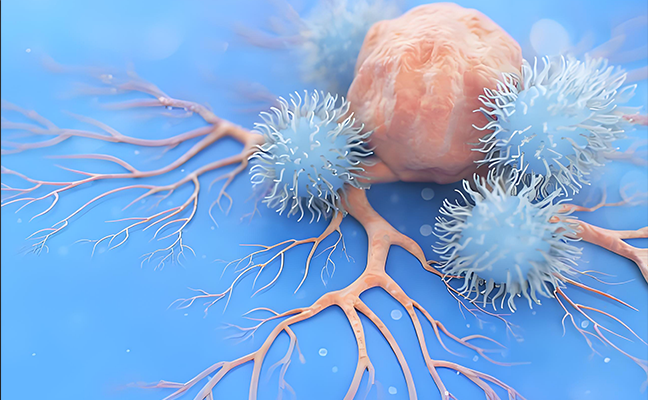New product launch | East-Mab Bio has newly introduced the Dengue IgM Detection Antigen, providing earlier, more accurate and comprehensive results!
Background:
Recent reports indicate that Dengue fever is widely prevalent in tropical and subtropical regions globally, with both the geographic range and number of cases showing continuous expansion and an upward trend.
Brazil is currently experiencing a high number of infections among the world. As of June 2, 2025, suspected and confirmed Dengue cases had risen to 1,430,300, with 1,075 deaths and an additional 818 suspected deaths under investigation.
What is Dengue Fever?
Dengue virus (DENV), a member of the genus *Flavivirus* within the family *Flaviviridae*, consists of four serotypes (DEN-1 to DEN-4). It is primarily transmitted by vector mosquitoes such as *Aedes aegypti* and *Aedes albopictus*, causing Dengue fever and the more severe, potentially fatal Dengue Hemorrhagic Fever (DHF) and Dengue Shock Syndrome (DSS). DENV is one of the most widespread and harmful arboviruses globally.
The incubation period for Dengue fever is generally 1-14 days(typically 5–9 days). Clinical manifestations include sudden onset, high fever, headache, smyalgia, arthralgia and in some cases, rash, hemorrhagic manifestations, lymphadenopathy, leukopenia, and thrombocytopenia. Dengue fever is endemic in tropical and subtropical regions. Due to its mosquito-borne transmission, outbreaks are seasonal, occurring mainly from May to November, peaking between July and September.
Dengue Fever Detection Methods
Currently, laboratory detection methods for suspected Dengue cases mainly include:
1. Serological Detection (Applicable primarily to blood samples collected over five days after onset.; However, potential cross-reactions with other Flavivirus infections should be noted.):
(1) Serum-specific IgM Antibody: Detected by ELISA, immunochromatography, etc. IgM typically appears 3-5 days after symptom onset, peaking around 2 weeks. A positive IgM result suggests a recent Dengue virus infection and serves as the primary serological basis for diagnosis during the window period.
(2) Serum-specific IgG Antibody: Detected by ELISA, Immunofluorescence Assay (IFA), immunochromatography, etc. Seroconversion of IgG antibodies during the convalescent phase, or a ≥4-fold rise in titer compared to the acute phase, can confirm the diagnosis. A single positive IgG result only indicates a past infection and cannot confirm the current acute infection.
(3) Neutralizing Antibody: Detected by plaque reduction neutralization tests (PRNT), microneutralization tests, etc., which can determine serotype. Seroconversion of neutralizing antibodies during the convalescent phase, or a ≥4-fold rise in titer compared to the acute phase, can confirm the diagnosis.
2. Pathogen Detection (Applicable primarily to acute-phase blood specimens):
(1) Antigen Detection: High detection rate in blood samples within 6 days of symptom onset. Detection of NS1 antigen confirms viral infection. Suitable for rapid on-site testing and early diagnosis.
(2) Nucleic Acid Detection: High detection rate in blood samples within 6 days of symptom onset. Detection of viral nucleic acid confirms infection and allows for serotyping. Useful for early diagnosis, but requires strict separation of workspaces to prevent contamination and false positives.
(3) Virus Isolation: Higher isolation rate from blood samples within 5 days of symptom onset. Involves inoculating samples onto mosquito-derived cells (C6/36) or mammalian cells (BHK21, Vero) for culture. Virus is identified by antigen or nucleic acid detection after cytopathic effect appears. Isolation confirms infection but is time-consuming and not suitable for rapid diagnosis.
East-Mab Bio Launches New IgM Detection E Protein
East-Mab Bio continues to innovate. Building upon its existing IgG DENV 1-4 E protein detection platform, it has successfully developed and added recombinant E proteins targeting IgM antibodies for all four serotypes, enhancing enhancing the detection capability for recent/acute dengue infections:
l Earlier detection of current infection: As an early immune response marker, IgM—when combined with the newly developed high-sensitivity E protein antigens—facilitates faster capture of immune response signals in the initial stage of infection, effectively shortening the diagnostic window period.
l More accurate identification of acute infection: Specific recognition of IgM antibodies effectively differentiates between recent and past infections, providing clinicians with more precise evidence for determining current infection.
l Comprehensive Dengue detection solution: Works synergistically with existing IgG detection to form a full-course serological testing solution covering early infection (IgM), convalescence, and past infection (IgG), significantly improving detection efficiency.
Dengue Raw Material Verification Results:
l Clinical Positive Samples: On the colloidal gold platform, a total of 38 confirmed dengue IgM/IgG-positive samples were tested, all of which showed positive results.
Specificity Testing: A total of 156 negative samples were also tested. For IgM, 2 false-positive results were observed, yielding a specificity of 98.7%. For IgG, 2 false-positive results were observed, also with a specificity of 98.7%.
IVD Diagnostic Proteins
Name | Cat# | Type | Expression System | Application | Recommended Usage |
DENV1-E | A00205 | Ag | Mammalian cell | LFTICLIA |
Capture/Detection; IgG Detection |
DENV2-E | A00206 | Ag | Mammalian cell | LFTICLIA | |
DENV3-E | A00207 | Ag | Mammalian cell | LFTICLIA | |
DENV4-E | A00208 | Ag | Mammalian cell | LFTICLIA | |
DENV1-EnV | A030711 | Ag | Mammalian cell | LFTICLIA | Capture/Detection; IgM Detection |
DENV2-EnV | A030712 | Ag | Mammalian cell | LFTICLIA | |
DENV3-EnV | A030713 | Ag | Mammalian cell | LFTICLIA | |
DENV4-EnV | A030714 | Ag | Mammalian cell | LFTICLIA |






